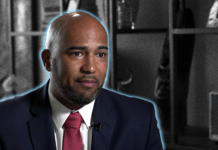by Mike Spangenberg
A few weeks ago, a group called the Caucus of Working Educators, a subgroup of the Philadelphia Federation of Teachers, posted an attack on Teach For America framed as an open letter to DeRay McKesson, a leader in the Black Lives Matter movement.
In the letter, the caucus expresses surprise that DeRay isn’t crusading against education reform – that they express their “solidarity with the Black Lives Matter movement.”
The letter presents very little that is new, and is unfortunately rife with factual error and logical non sequitur. It says “most of” TFA corps members are white, despite the fact that just under half actually are white. It decries the fact that only “31 percent of Philadelphia teachers are of color,” but makes no more than an implied connection between TFA and this reality while ignoring the fact that TFA is among the most diverse teacher preparation programs in the country, and that TFA corps members make up maybe 1% of the teaching force in the School District of Philadelphia. It condemns charter schools as “a failure of public leadership to lead and create change in our public schools,” with no reflection on the state of the schools parents are choosing to leave to enroll in charters. And so on.
I won’t refute all the errors line by line. That really wouldn’t accomplish much. Nor am I going to try to speak for DeRay—he does that on his own much better than I ever could.
But this letter has me thinking more about who controls narratives about racial justice when it comes to education.
In the boldest portions of the letter, the caucus claims the rightful mantle of the Black Lives Matter movement and says “We consider the attacks on public education to be a part of the ‘state-sanctioned violence’ that the movement has done so much to highlight over the last year.”
Do you see how they framed that? Attacks on public education systems are “state-sanctioned violence.” That doesn’t even make sense. Public education systems are the state.
A system of white progressive self-interest
The current and generations-old system of state-run public schools depriving children of color of an effective education is itself a dominant form of state-sanctioned violence.
But this truth is hidden in the narrative put forward by so many “liberal,” “progressive” folks, largely because that’s what they hear teachers’ unions saying. Many of my progressive friends concerned with racial justice are too often unquestioning the positions of teachers unions when it comes to issues of equity. This deference is dangerous.
The reality is that there is no inherent virtue in traditional school districts (as evidenced by a couple hundred years of failing people of color), nor is there any inherent virtue in teachers unions, nor in charter schools, nor TFA, nor any other reform initiative.
All of them, and all of us, are complicit in the continued oppression of Black, Native, Asian, and Latino children.
There are many changes that need to take place in education, and some of those changes include teachers and the extent to which they are delivering culturally competent, rigorous instruction. To the extent that teachers are one of the many problematic components of our current education system for kids of color, we can’t expect them to radically change themselves.
That’s like trusting White people to identify the extent to which we’re accountable for racism broadly and letting us proscribe its solutions. That’s an obviously terrible idea, because as White people who are part of and perpetuate systems of oppression, we’re necessarily going to limit any solutions to the firm boundaries of our own emotional and material comfort.
As White people, should we be listening to those oppressed by the systems in which we function? Yes. Should we be working to understand our role in those systems and consciously trying to disrupt them? Yes. But should our narrative of what it will take to achieve racial justice be deferred to as sacrosanct? Hell no.
‘Working Educators’ should support real change
In the case of this letter, I checked out the platform of the Working Educators Caucus. The platform calls for things like transparency and shared decision-making, and end to test-driven curricula, full funding of education, and a strong teacher contract. It does not say anything about what might be required of teachers to dramatically disrupt the currently oppressive school system.
I won’t say teachers unions are inherently bad. On the contrary, they’re really good at things like securing guaranteed wages and consistent working conditions, and protecting members from incompetent, arbitrarily hostile administrators (and I’ve seen LOTS of these). But by their very nature they’re not a good proxy for the wishes of families and communities nor of the requirements of justice.
I’ve seen unions do important work for teachers, school employees, and students’ families. But I also distinctly remember the beginning of my career when I was a dues-paying member of the Philadelphia Federation of Teachers and was standing in the hall, watching students as they switched from one class to another. A more-veteran member of the PFT approached me and said, “hey, don’t do that.”
“Do what?” I asked.
“Stand in the hall. They can’t make you do that.”
“No one’s making me do it,“ I responded, “I’m just watching the kids to make sure everything’s ok.”
They protested that when we did things that we weren’t contractually obligated to do, we lost power. Versions of this interaction happened dozens of times. The teacher might have been right. Maybe my actions did mean the union lost bargaining power. But encouraging me not to stand in the hallway to make sure kids were safe can’t possibly be construed as doing what’s best for kids in that moment.
I agree with the caucus on a lot of things. Philly schools are underfunded. Criminally so. And state leaders have shown some true cowardice in doing nothing to change that. But I was also working in Philly when schools weren’t so underfunded. And outcomes for kids of color weren’t any better.
I still know lots of people working and teaching in Philly. They’re tremendously good people who love their kids. But I can’t let my affection for these individual people to cloud the bigger picture, which is that schools have been working very effectively as state tools of White supremacy for generations.
The same is true of the caucus. I have no doubt that they are a group of incredibly dedicated, loving people who want success for their kids. And I’m grateful for what they give of themselves in their service.
I’m not anti-union. I’m not down with charterizing all schools or advocating expanding TFA to conquer the world. I’m not wedded to any system, especially the current racist one. They’ve all failed. Burn them down and start over if that will help kids of color achieve the education they deserve. Whatever change is going to be required to achieve educational justice for kids of color is going to be dramatic.
If we’re going to achieve radical change we’ll need to shelf the pseudo-radical language that covers our intent to perpetuate a system that is failing kids of color. And, we should send a open letter to ourselves challenging our own contribution to injustice, not to people of color like DeRay Mckesson who are upsetting the systems that attack their communities.









